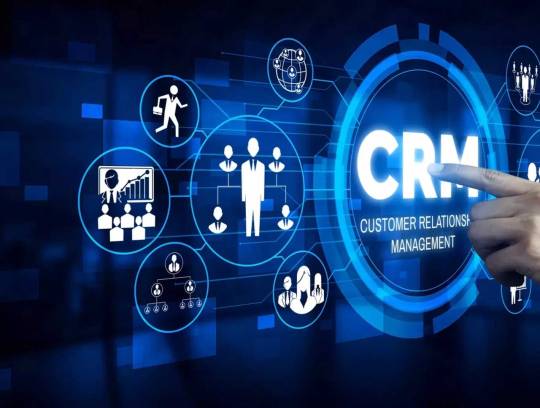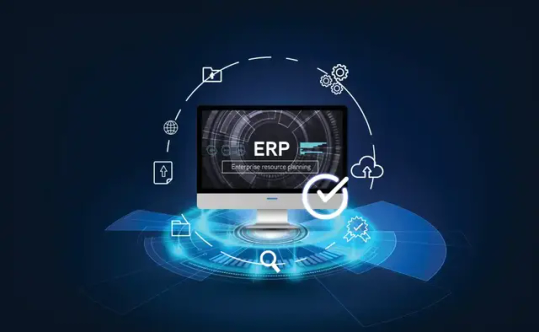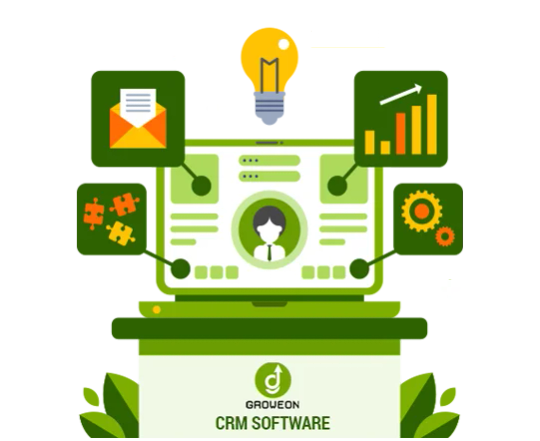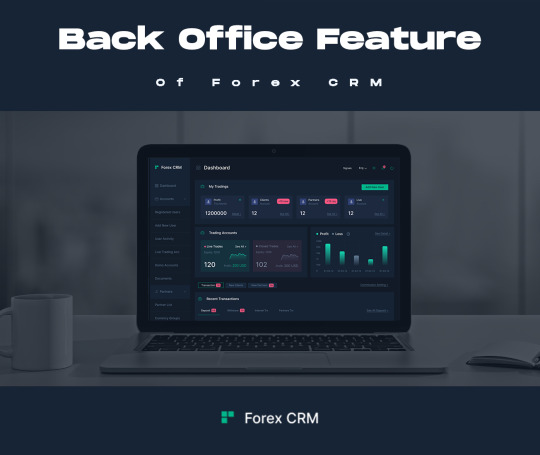#choosing CRM software
Explore tagged Tumblr posts
Text
How to Use CRM Software to Improve Customer Relations
Introduction
In today’s competitive market, maintaining strong customer relations is crucial for business success. One of the best ways to achieve this is by using Customer Relationship Management (CRM) software. This article will guide you on how to use CRM software to enhance your customer relations and boost your business performance. Read to Continue
#automating tasks with CRM#benefits of CRM software#best CRM practices#choosing CRM software#CRM and marketing tools#CRM customization#CRM data analysis#CRM for business#CRM for sales automation#CRM reports and dashboards#CRM setup guide#CRM software#customer relations#customer service with CRM#how to use CRM#improving customer relations#integrating CRM tools#tracking customer interactions#understanding customer insights#software solutions
1 note
·
View note
Text
Finding the Right Home Builder CRM: Choose the Best Tool for Your Business Success
Learn how to find the right Home Builder CRM to fit your business needs. Discover essential features, benefits, and tips for selecting the best CRM that streamlines project management, enhances client communication, and helps your home building business grow.
Read More

#right Home Builder CRM#choosing the best CRM for home builders#CRM for home builders#best CRM for construction business#home builder CRM software#CRM features for builders#selecting a CRM for home building#improving client relationships with CRM.
0 notes
Text
How to Choose the Best CRM for Small Business Success

Managing customer relationships can feel overwhelming for small businesses. In our blog, we guide you on how to choose the best CRM for small business success. With tools like Bizmated Stacked CRM, streamline operations and boost growth. Read the blog on our website and explore Bizmated’s solutions today!
1 note
·
View note
Text
What are the next steps after obtaining an insurance broker license, and how can you generate potential leads using Mzapp CRM software?
Congratulations on securing your insurance broker license! The journey doesn’t end here; it’s just the beginning of building a successful insurance brokerage. Here’s how you can proceed and leverage Mzapp CRM software to find potential leads:
Steps After Getting Your Insurance Broker License
Understand Your Market: Research your target audience (individuals, businesses, or specific sectors).
Develop a Business Plan: Set goals for client acquisition, revenue, and operational processes.
Build a Network: Partner with insurance providers and attend industry events to establish your presence.
Create an Online Presence: Build a professional website and maintain active profiles on social platforms.
Offer Value-Added Services: Educate customers on policies, claims management, and risk assessments.
Using Mzapp CRM Software to Generate Leads
Lead Capture: Utilize Mzapp’s integrated forms and web tracking tools to capture inquiries from your website or social media.
Automated Follow-Ups: Set up personalized email and SMS follow-ups to nurture leads effectively.
Lead Scoring: Prioritize leads based on their interaction history, ensuring you focus on high-potential prospects.
Data-Driven Campaigns: Use analytics to identify what works and launch targeted campaigns.
Seamless Policy Management: Impress leads by showcasing how smoothly you manage policies and claims through Mzapp.
Why Choose Mzapp CRM?
Mzapp CRM simplifies lead management, streamlines operations, and provides insights into customer behavior, making it easier to convert prospects into loyal clients.
Learn more about how Mzapp can transform your insurance business here.
#Question:#What are the next steps after obtaining an insurance broker license#and how can you generate potential leads using Mzapp CRM software?#Answer:#Congratulations on securing your insurance broker license! The journey doesn’t end here; it’s just the beginning of building a successful i#Steps After Getting Your Insurance Broker License#Understand Your Market: Research your target audience (individuals#businesses#or specific sectors).#Develop a Business Plan: Set goals for client acquisition#revenue#and operational processes.#Build a Network: Partner with insurance providers and attend industry events to establish your presence.#Create an Online Presence: Build a professional website and maintain active profiles on social platforms.#Offer Value-Added Services: Educate customers on policies#claims management#and risk assessments.#Using Mzapp CRM Software to Generate Leads#Lead Capture: Utilize Mzapp’s integrated forms and web tracking tools to capture inquiries from your website or social media.#Automated Follow-Ups: Set up personalized email and SMS follow-ups to nurture leads effectively.#Lead Scoring: Prioritize leads based on their interaction history#ensuring you focus on high-potential prospects.#Data-Driven Campaigns: Use analytics to identify what works and launch targeted campaigns.#Seamless Policy Management: Impress leads by showcasing how smoothly you manage policies and claims through Mzapp.#Why Choose Mzapp CRM?#Mzapp CRM simplifies lead management#streamlines operations#and provides insights into customer behavior#making it easier to convert prospects into loyal clients.#Learn more about how Mzapp can transform your insurance business here.
1 note
·
View note
Text

How to Choose the Best CRM Software for Your Business
Choosing the right CRM software for your business is a big decision — and the right one can make a world of difference. Whether you’re running a small startup or managing a growing company, having an effective CRM (Customer Relationship Management) system helps you keep track of customers, boost sales, and improve overall productivity. Let’s walk through how you can choose the best CRM for your business without getting overwhelmed.
Why Your Business Needs a CRM
A CRM isn’t just a tool — it’s your business’s central hub for managing relationships. If you’re still relying on spreadsheets or scattered notes, you’re probably losing time (and leads). A good CRM helps you:
Keep customer data organized in one place
Track leads, sales, and follow-ups
Automate routine tasks
Get insights into sales performance
Improve customer service
The goal is simple: work smarter, not harder. And with an affordable CRM that fits your needs, you’ll see faster growth and smoother processes.
Define Your Business Goals
Before diving into features, figure out what you actually need. Ask yourself:
Are you trying to increase sales or improve customer service?
Do you need better lead tracking or marketing automation?
How big is your team, and how tech-savvy are they?
What’s your budget?
Knowing your goals upfront keeps you from wasting time on CRMs that might be packed with unnecessary features — or worse, missing key ones.
Must-Have Features to Look For
When comparing CRM options, focus on features that truly matter for your business. Here are some essentials:
Contact Management – Store customer details, interactions, and notes all in one place.
Lead Tracking – Follow leads through the sales funnel and never miss a follow-up.
Sales Pipeline Management – Visualize where your deals stand and what needs attention.
Automation – Save time by automating emails, reminders, and data entry.
Customization – Adjust fields, workflows, and dashboards to match your process.
Third-Party Integrations – Ensure your CRM connects with other software you rely on, like email marketing tools or accounting systems.
Reports & Analytics – Gain insights into sales, performance, and customer behavior.
User-Friendly Interface – If your team finds it clunky or confusing, they won’t use it.
Budget Matters — But Value Matters More
A CRM doesn’t have to cost a fortune. Plenty of affordable CRM options offer robust features without the hefty price tag. The key is balancing cost with value. Don’t just chase the cheapest option — pick a CRM that supports your business growth.
Take LeadHeed, for example. It’s an affordable CRM designed to give businesses the tools they need — like lead management, sales tracking, and automation — without stretching your budget. It’s a smart pick if you want to grow efficiently without overpaying for features you won’t use.
Test Before You Commit
Most CRMs offer a free trial — and you should absolutely use it. A CRM might look great on paper, but it’s a different story when you’re actually using it. During your trial period, focus on:
How easy it is to set up and start using
Whether it integrates with your existing tools
How fast you can access and update customer information
If your team finds it helpful (or frustrating)
A trial gives you a real feel for whether the CRM is a good fit — before you commit to a paid plan.
Think About Long-Term Growth
Your business might be small now, but what about next year? Choose a CRM that grows with you. Look for flexible pricing plans, scalable features, and the ability to add more users or advanced functions down the line.
It’s better to pick a CRM that can expand with your business than to go through the hassle of switching systems later.
Check Customer Support
Even the best software can hit a snag — and when that happens, you’ll want reliable support. Look for a CRM that offers responsive customer service, whether that’s live chat, email, or phone. A system is only as good as the help you get when you need it.
Read Reviews and Compare
Don’t just rely on the CRM’s website. Read reviews from other businesses — especially ones similar to yours. Sites like G2, Capterra, and Trustpilot offer honest insights into what works (and what doesn’t). Comparing multiple CRMs ensures you make a well-rounded decision.
The Bottom Line
Choosing the best CRM software for your business doesn’t have to be complicated. By understanding your goals, focusing on essential features, and keeping scalability and budget in mind, you’ll find a CRM that fits like a glove.
If you’re looking for an affordable CRM Software that checks all the right boxes — without cutting corners — LeadHeed is worth exploring. It’s built to help businesses like yours manage leads, automate tasks, and gain valuable insights while staying within budget.
The right CRM can transform how you run your business. Take the time to find the one that supports your growth, keeps your team organized, and helps you deliver an even better experience to your customers.
3 notes
·
View notes
Text


Best ERP and CRM Software Company in India | JRS Dynamics Info Solutions
Looking for reliable ERP and CRM solutions? JRS Dynamics Info Solutions is your go-to partner for streamlining business operations and driving growth.
Why Choose JRS Dynamics? ✅ End-to-End ERP Solutions ✅ Advanced CRM Systems ✅ Industry-Specific Customizations ✅ Implementation, Support & Upgrades
JRS Dynamics, we deliver cutting-edge technology to help businesses in India thrive in a competitive landscape.
Explore our services at: https://jrsdynamics.com/
Empower your business with the best ERP and CRM solutions from JRS Dynamics!
#crm#crm software#crm solutions#crm management software#erp#erpsoftware#dynamics365#erp solutions provider#digitaltransformation#businessmanagement#businessgrowth#businesssolutions#microsoftdynamics365#erp system#softwaredevelopment
4 notes
·
View notes
Text
How Small and Mid-Sized Engineering Firms Can Benefit from ERP
In today’s competitive business landscape, manufacturers and engineering companies in India are under constant pressure to improve efficiency, reduce costs, and enhance productivity. The adoption of ERP for manufacturing companies in India has become more than just a trend—it is a necessity for survival and growth. Manufacturing ERP software in India is specifically designed to address the unique challenges faced by the industry, offering seamless integration, automation, and data-driven decision-making capabilities.

If you are an engineering or manufacturing business looking to streamline your operations, this blog will help you understand why ERP software for engineering companies in India is essential and how choosing the best ERP for the engineering industry can revolutionize your operations.
Why ERP is Essential for Manufacturing and Engineering Companies
1. Streamlining Operations and Enhancing Efficiency
One of the biggest challenges faced by manufacturing and engineering companies is managing various processes such as inventory, procurement, production, and distribution. Manufacturing ERP software in India centralizes data, enabling real-time monitoring and control over every aspect of the business. This eliminates redundant tasks, reduces manual errors, and improves efficiency.
2. Improved Supply Chain Management
A well-integrated ERP system ensures smooth coordination with suppliers, vendors, and distributors. With ERP for manufacturing companies in India, businesses can track raw materials, monitor supplier performance, and optimize procurement processes, reducing delays and ensuring a seamless supply chain.
3. Enhanced Data-Driven Decision Making
With access to real-time data analytics and comprehensive reporting, ERP software for engineering companies in India empowers businesses to make informed decisions. Managers can analyze production trends, forecast demand, and identify areas for improvement, leading to better business outcomes.
4. Cost Reduction and Higher Profitability
Automation of processes helps in minimizing waste, reducing operational costs, and increasing profitability. The best ERP for the engineering industry ensures resource optimization by tracking inventory levels, reducing excess stock, and eliminating inefficiencies in production planning.
5. Compliance and Quality Control
Manufacturers must adhere to strict industry standards and regulatory requirements. Manufacturing ERP software in India helps in maintaining compliance by providing documentation, audit trails, and quality control measures, ensuring that all products meet industry regulations.
Key Features of the Best ERP for Engineering Industry
Choosing the right ERP solution is crucial for achieving maximum benefits. Here are some key features to look for in an ERP software for engineering companies in India:
Comprehensive Production Planning & Control – Ensures seamless coordination between different production units.
Inventory & Material Management – Tracks stock levels, raw materials, and procurement processes efficiently.
Financial Management – Integrates accounting, payroll, and financial reporting for better fiscal control.
Supply Chain Management – Enhances supplier relationships and improves procurement efficiency.
Customer Relationship Management (CRM) – Manages customer interactions, sales pipelines, and service requests.
Business Intelligence & Reporting – Provides real-time insights for strategic decision-making.
Scalability & Customization – Adapts to the growing needs of your business with modular functionalities.
Top ERP Software Providers in India
India is home to some of the top ERP software providers, offering advanced solutions for engineering and manufacturing businesses. Companies like Shantitechnology (STERP) have emerged as leaders in providing industry-specific ERP solutions that cater to the unique requirements of manufacturing and engineering firms.
Why Choose STERP?
STERP is one of the top ERP software providers in India, offering customized ERP solutions specifically designed for the engineering and manufacturing industries. Here is why STERP stands out:
Industry-Specific Solutions – Tailored to meet the challenges of the manufacturing and engineering sectors.
Cloud & On-Premise Options – Flexible deployment models to suit different business needs.
User-Friendly Interface – Easy to use, with intuitive dashboards and real-time analytics.
Excellent Customer Support – Dedicated support teams for implementation and ongoing assistance.
Scalable Solutions – Designed to grow with your business, ensuring long-term usability and return on investment.
How to Implement ERP for Maximum Success
Step 1: Assess Business Needs
Understand your business requirements and identify key areas that need improvement. Choose a solution that aligns with your industry needs.
Step 2: Choose the Right ERP Software
Selecting the best ERP for the engineering industry involves comparing features, scalability, pricing, and vendor support.
Step 3: Customization & Integration
Ensure that the ERP system integrates seamlessly with your existing tools and is customizable to fit your unique business processes.
Step 4: Training & Support
Invest in training programs to ensure that your team is comfortable using the new system. Opt for a provider that offers continuous support and upgrades.
Step 5: Monitor & Optimize
Post-implementation, continuously monitor the system’s performance, gather feedback, and make necessary optimizations to enhance efficiency.
Future Trends in ERP for Manufacturing and Engineering
The ERP landscape is evolving rapidly, with emerging trends shaping the future of ERP for manufacturing companies in India. Some key trends to watch include:
AI & Machine Learning Integration – Automating predictive maintenance and process optimization.
Cloud-Based ERP Solutions – Offering flexibility, remote accessibility, and cost savings.
IoT-Enabled ERP – Enhancing real-time tracking of production and inventory.
Mobile ERP – Allowing on-the-go access for better decision-making.
Blockchain for Supply Chain Management – Ensuring transparency and security in transactions.
Conclusion
Investing in ERP software for engineering companies in India is no longer an option—it is a necessity for businesses looking to stay ahead in the competitive market. Whether you are a small manufacturer or a large-scale engineering firm, having the best ERP for the engineering industry can drive efficiency, improve decision-making, and enhance overall profitability.
With industry leaders like Shantitechnology (STERP) offering cutting-edge solutions, businesses can achieve digital transformation effortlessly. As one of the top ERP software providers in India, STERP continues to empower manufacturing and engineering companies with tailored ERP solutions.
Are you ready to revolutionize your business with ERP? Contact STERP today and take the first step towards seamless automation and unmatched efficiency!
#ERP software for engineering companies#Engineering ERP Software Company#ERP solution providers#ERP software companies#ERP software for engineering companies in India#Best ERP for engineering industry#India#Gujarat#Maharashtra
4 notes
·
View notes
Text

If you were starting a brand name, you'd probably say it aloud a few times to see how it sounds, and very likely wouldn't choose a name that is pronounced "see incest".
Reminds me of the customer management software CRM version 8 from circa 2002, which a call center I worked in had just moved to, and my boss pointed out that CRM8 is pronounced as "cremate".
FYI on this product: It's supposed to be a library-style card catalog, but it is 19.6" across... so those drawers are less than 5" across thus will not hold 3x5 cards.
2 notes
·
View notes
Text
AI Agent Development: How to Create Intelligent Virtual Assistants for Business Success
In today's digital landscape, businesses are increasingly turning to AI-powered virtual assistants to streamline operations, enhance customer service, and boost productivity. AI agent development is at the forefront of this transformation, enabling companies to create intelligent, responsive, and highly efficient virtual assistants. In this blog, we will explore how to develop AI agents and leverage them for business success.

Understanding AI Agents and Virtual Assistants
AI agents, or intelligent virtual assistants, are software programs that use artificial intelligence, machine learning, and natural language processing (NLP) to interact with users, automate tasks, and make decisions. These agents can be deployed across various platforms, including websites, mobile apps, and messaging applications, to improve customer engagement and operational efficiency.
Key Features of AI Agents
Natural Language Processing (NLP): Enables the assistant to understand and process human language.
Machine Learning (ML): Allows the assistant to improve over time based on user interactions.
Conversational AI: Facilitates human-like interactions.
Task Automation: Handles repetitive tasks like answering FAQs, scheduling appointments, and processing orders.
Integration Capabilities: Connects with CRM, ERP, and other business tools for seamless operations.
Steps to Develop an AI Virtual Assistant
1. Define Business Objectives
Before developing an AI agent, it is crucial to identify the business goals it will serve. Whether it's improving customer support, automating sales inquiries, or handling HR tasks, a well-defined purpose ensures the assistant aligns with organizational needs.
2. Choose the Right AI Technologies
Selecting the right technology stack is essential for building a powerful AI agent. Key technologies include:
NLP frameworks: OpenAI's GPT, Google's Dialogflow, or Rasa.
Machine Learning Platforms: TensorFlow, PyTorch, or Scikit-learn.
Speech Recognition: Amazon Lex, IBM Watson, or Microsoft Azure Speech.
Cloud Services: AWS, Google Cloud, or Microsoft Azure.
3. Design the Conversation Flow
A well-structured conversation flow is crucial for user experience. Define intents (what the user wants) and responses to ensure the AI assistant provides accurate and helpful information. Tools like chatbot builders or decision trees help streamline this process.
4. Train the AI Model
Training an AI assistant involves feeding it with relevant datasets to improve accuracy. This may include:
Supervised Learning: Using labeled datasets for training.
Reinforcement Learning: Allowing the assistant to learn from interactions.
Continuous Learning: Updating models based on user feedback and new data.
5. Test and Optimize
Before deployment, rigorous testing is essential to refine the AI assistant's performance. Conduct:
User Testing: To evaluate usability and responsiveness.
A/B Testing: To compare different versions for effectiveness.
Performance Analysis: To measure speed, accuracy, and reliability.
6. Deploy and Monitor
Once the AI assistant is live, continuous monitoring and optimization are necessary to enhance user experience. Use analytics to track interactions, identify issues, and implement improvements over time.
Benefits of AI Virtual Assistants for Businesses
1. Enhanced Customer Service
AI-powered virtual assistants provide 24/7 support, instantly responding to customer queries and reducing response times.
2. Increased Efficiency
By automating repetitive tasks, businesses can save time and resources, allowing employees to focus on higher-value tasks.
3. Cost Savings
AI assistants reduce the need for large customer support teams, leading to significant cost reductions.
4. Scalability
Unlike human agents, AI assistants can handle multiple conversations simultaneously, making them highly scalable solutions.
5. Data-Driven Insights
AI assistants gather valuable data on customer behavior and preferences, enabling businesses to make informed decisions.
Future Trends in AI Agent Development
1. Hyper-Personalization
AI assistants will leverage deep learning to offer more personalized interactions based on user history and preferences.
2. Voice and Multimodal AI
The integration of voice recognition and visual processing will make AI assistants more interactive and intuitive.
3. Emotional AI
Advancements in AI will enable virtual assistants to detect and respond to human emotions for more empathetic interactions.
4. Autonomous AI Agents
Future AI agents will not only respond to queries but also proactively assist users by predicting their needs and taking independent actions.
Conclusion
AI agent development is transforming the way businesses interact with customers and streamline operations. By leveraging cutting-edge AI technologies, companies can create intelligent virtual assistants that enhance efficiency, reduce costs, and drive business success. As AI continues to evolve, embracing AI-powered assistants will be essential for staying competitive in the digital era.
5 notes
·
View notes
Text
What Are the Key Factors to Consider When Choosing a Payment Solution Provider?

The rapid growth of digital transactions has made choosing the right payment solution provider a crucial decision for businesses. Whether you operate an e-commerce store, a subscription-based service, or a financial institution, selecting the right provider ensures secure and efficient payment processing. With the increasing demand for fintech payment solutions, businesses must evaluate providers based on security, compatibility, scalability, and cost-effectiveness.
1. Security and Compliance
Security is the top priority when selecting a payment solution provider. Since financial transactions involve sensitive customer data, businesses must ensure that their provider follows strict security protocols. Look for providers that comply with PCI DSS (Payment Card Industry Data Security Standard) and offer encryption, tokenization, and fraud prevention measures.
A reputable provider should also offer real-time fraud detection and risk management tools to safeguard transactions. Compliance with regional regulations such as GDPR, CCPA, or PSD2 is also crucial for businesses operating in multiple locations.
2. Integration and Compatibility
Seamless Payment gateway integration is essential for a smooth transaction experience. Businesses should assess whether the provider’s APIs and SDKs are compatible with their existing platforms, including websites, mobile apps, and POS systems. A well-documented API enables easy customization and enhances the overall customer experience.
Additionally, businesses should consider whether the provider supports multiple payment methods such as credit cards, digital wallets, cryptocurrencies, and bank transfers. The ability to integrate with accounting, CRM, and ERP software is also beneficial for streamlining financial operations.
3. Cost and Pricing Structure
Understanding the pricing structure of payment solution providers is crucial for managing operational costs. Different providers offer various pricing models, including:
Flat-rate pricing – A fixed percentage per transaction
Interchange-plus pricing – A combination of network fees and provider markup
Subscription-based pricing – A fixed monthly fee with lower transaction costs
Businesses should evaluate setup fees, transaction fees, chargeback fees, and any hidden costs that may impact profitability. Opting for a transparent pricing model ensures cost-effectiveness in the long run.
4. Scalability and Performance
As businesses grow, their payment processing needs will evolve. Choosing a provider that offers scalable fintech payment solutions ensures seamless expansion into new markets and accommodates higher transaction volumes without downtime or slow processing speeds.
Look for providers with a robust infrastructure that supports high uptime, fast transaction processing, and minimal payment failures. Cloud-based payment solutions often offer better scalability and reliability for growing businesses.
5. Customer Support and Service Reliability
Reliable customer support is essential when dealing with financial transactions. Payment-related issues can result in revenue loss and customer dissatisfaction. Businesses should opt for providers that offer 24/7 customer support via multiple channels such as phone, email, and live chat.
Additionally, a provider with dedicated account management services can offer personalized solutions and proactive issue resolution, ensuring minimal disruptions to business operations.
6. Multi-Currency and Global Payment Support
For businesses targeting international markets, multi-currency support is a key consideration. The ability to accept payments in different currencies and offer localized payment methods enhances customer satisfaction and expands the business’s global reach.
Providers that support cross-border transactions with competitive exchange rates and minimal conversion fees are ideal for businesses operating in multiple countries.
7. Fintech Payment System Compatibility
A modern fintech payment system should be adaptable to emerging financial technologies. Businesses should evaluate whether the provider supports innovations like blockchain payments, real-time payment processing, and artificial intelligence-driven fraud prevention.
The ability to integrate with open banking solutions and provide seamless transaction experiences across various fintech ecosystems is becoming increasingly important in the digital payment landscape.
8. Reputation and Industry Experience
The credibility of a payment solution provider is another critical factor. Researching customer reviews, case studies, and testimonials can provide insights into the provider’s reliability and performance.
Established providers with years of experience and partnerships with reputable financial institutions are more likely to offer stable and secure payment processing services. Collaborations with fintech leaders, such as Xettle Technologies, demonstrate a provider’s commitment to innovation and excellence in payment solutions.
Conclusion
Choosing the right payment solution provider requires careful consideration of security, integration, pricing, scalability, customer support, and industry experience. Businesses must align their choice with long-term growth objectives and ensure that the provider offers secure, seamless, and cost-effective fintech payment solutions.
With the rise of digital transactions, businesses that invest in a robust fintech payment system with seamless payment gateway integration will gain a competitive edge and enhance customer trust. By partnering with reputable payment solution providers, businesses can ensure secure and efficient transaction experiences for their customers while maximizing operational efficiency.
3 notes
·
View notes
Text
What is SaaS and How to Build a SaaS Platform
What is SaaS? SaaS, or Software as a Service, is a cloud-based software delivery model where applications are hosted online and accessed through the internet. Unlike traditional software that requires installation, SaaS applications run on web browsers, offering convenience and flexibility. The provider manages all technical aspects, including updates, maintenance, and security, while users pay a subscription fee for access.
SaaS is popular for its cost-effectiveness and scalability. Businesses use SaaS for tools like customer relationship management (CRM) systems, project management platforms, and communication solutions. Consumers also rely on SaaS for entertainment and personal productivity.
How to Build a SaaS Platform If you're wondering how to build a SaaS platform, here are the essential steps:
Define Your Purpose: Start by identifying a problem that your SaaS platform will address. Research your audience and focus on a specific niche.
Plan Features: List features that add value, such as easy navigation, integrations, and real-time collaboration. Scalability should also be a priority.
Select the Right Technology: Choose technologies like React for frontend development, Node.js or Python for backend, and cloud hosting platforms like AWS.
Create an MVP: Build a Minimum Viable Product to test your concept, gather feedback, and refine your platform.
Ensure Security: Implement strong encryption, secure authentication, and regular updates to protect user data.
By understanding what SaaS is and following these steps, you can build a successful SaaS platform that meets market needs.
2 notes
·
View notes
Text
How to Choose the Best CRM Tool for Your Small Business?

One out of five small businesses fail within the first year. No, this is not to demotivate you but to show you the reality of how important the first five years of a small business are. Most small businesses struggle to deal with customers as customers have different needs, and managing all your different customers feels next to impossible; that’s why you need CRM software.
Customer relationship management (CRM) software has revolutionised the way businesses interact with customers. It helps reduce the need for manual input by automating key processes like tracking customer interactions, managing leads, and organising sales pipelines. CRM software is proven to increase business productivity and efficiency and improve overall customer satisfaction.
Before you put your skates on and look for a CRM tool, it is crucial to choose a CRM tool that is perfect for your business, as the internet is flooded with tons of CRM software. Here are the key factors to consider when selecting the best CRM tool for your small business.
1. Identify Your Business Needs
Before diving into the technical details of various CRM tools, it’s important to clearly identify your business’s unique needs. Ask yourself questions like:
- What are your current pain points in customer management?
- Are you looking to streamline sales, marketing, or customer service processes?
- How many people will be using the CRM system?
Once you understand your specific goals, choosing CRM software will be quite easy for you as you can prioritise what features the software must have.
2. User-Friendly Interface
As a small business, you most likely won’t have a tech-savvy and highly experienced team, so it is crucial to choose CRM software with a user-friendly interface. A simple and user-friendly interface will allow your team to quickly adapt and use the software efficiently. Look for a CRM that offers an intuitive dashboard, easy navigation, and simple data entry processes.
Additionally, many CRM tools offer free trials, so take advantage of this to assess whether the platform is easy for your team to use and navigate.
3. Affordability
Most small businesses don’t have massive profits and income-generating revenues, so it is crucial not to get overexcited and choose CRM software that suits your budget. CRM software with more features and capabilities will cost more, so it is vital to understand your business needs and opt for a CRM that doesn’t break the bank and gets the job done. Groweon CRM software is quite affordable and has tons of features, so it is a great choice for small businesses.
4. Scalability
As your business grows, your CRM should be able to grow with you. Look for a CRM solution that offers scalable features so that you don’t outgrow the tool as your customer base expands. A scalable CRM will allow you to add new users, customise workflows, and integrate additional tools without disruption.
Choosing a CRM that can scale alongside your business will save you the hassle of transitioning to a new platform as your needs evolve.
5. Mobile Accessibility
In today’s fast-paced business environment, having access to your CRM data on the go is essential. Mobile accessibility enables you to update and access customer information, track sales, and communicate with your team from anywhere. This is particularly useful for small business owners or sales teams who spend a significant amount of time out of the office.
Ensure that the CRM tool you choose offers a robust mobile application that is easy to use and provides the same level of functionality as its desktop version.
6. Customer Support
Reliable customer support is crucial, especially when you’re first implementing a CRM system. Small businesses often lack the in-house expertise to troubleshoot technical issues, so having access to a responsive support team can make a significant difference.
Look for CRM providers that offer 24/7 customer support, training resources, and user communities. Some CRM tools even offer dedicated account managers for small businesses, ensuring that you get personalised help whenever needed.
Conclusion
Choosing the best CRM tool for your small business can make a world of difference to your business’s operations and massively improve productivity. No matter what industry you are in, ideal CRM software can transform the way you manage customers.
3 notes
·
View notes
Text
In the era of digital transformation, cloud computing has emerged as a pivotal technology, reshaping the way businesses operate and innovate. Pune, a burgeoning IT and business hub, has seen a significant surge in the adoption of cloud services, with companies seeking to enhance their efficiency, scalability, and agility. Zip Crest stands at the forefront of this revolution, offering comprehensive cloud computing services tailored to meet the diverse needs of businesses in Pune
The Importance of Cloud Computing
Cloud computing enables organizations to leverage a network of remote servers hosted on the internet to store, manage, and process data, rather than relying on local servers or personal computers. This shift provides several key benefits:
- Scalability: Businesses can easily scale their operations up or down based on demand, without the need for significant capital investment in hardware.
- Cost Efficiency: Cloud services operate on a pay-as-you-go model, reducing the need for substantial upfront investment and lowering overall IT costs.
- Accessibility: Cloud computing allows access to data and applications from anywhere, at any time, fostering remote work and collaboration.
- Security: Leading cloud service providers offer robust security measures, including encryption, access controls, and regular security audits, to protect sensitive data.
Zip Crest: Leading Cloud Computing Services in Pune
Zip Crest is committed to empowering businesses in Pune with cutting-edge cloud computing solutions. Our services are designed to address the unique challenges and opportunities that come with the digital age. Here’s how we can transform your business operations:
1. Cloud Strategy and Consulting:
At Zip Crest, we begin by understanding your business objectives and IT infrastructure. Our experts then craft a bespoke cloud strategy that aligns with your goals, ensuring a seamless transition to the cloud and maximizing the benefits of cloud technology.
2. Infrastructure as a Service (IaaS):
Our IaaS offerings provide businesses with virtualized computing resources over the internet. This includes virtual machines, storage, and networking capabilities, allowing you to build and manage your IT infrastructure without the need for physical hardware.
3. Platform as a Service (PaaS):
With our PaaS solutions, developers can build, deploy, and manage applications without worrying about the underlying infrastructure. This accelerates development cycles, enhances productivity, and reduces time to market.
4. Software as a Service (SaaS):
Zip Crest offers a range of SaaS applications that can streamline your business processes. From customer relationship management (CRM) to enterprise resource planning (ERP), our cloud-based software solutions are designed to improve efficiency and drive growth.
5. Cloud Migration Services:
Transitioning to the cloud can be complex. Our cloud migration services ensure a smooth and secure migration of your applications, data, and workloads to the cloud, minimizing downtime and disruption to your business operations.
6. Managed Cloud Services:
Once your infrastructure is on the cloud, ongoing management is crucial to ensure optimal performance and security. Our managed cloud services provide continuous monitoring, maintenance, and support, allowing you to focus on your core business activities.

Why Choose Zip Crest?
Choosing Zip Crest for your cloud computing needs comes with several advantages:
- Expertise: Our team of certified cloud professionals brings extensive experience and deep knowledge of cloud technologies.
- Customized Solutions: We understand that every business is unique. Our solutions are tailored to meet your specific requirements and objectives.
-Proactive Support: We offer 24/7 support to ensure that your cloud infrastructure is always running smoothly and efficiently.
- Security Focus: Security is at the core of our services. We implement robust security measures to protect your data and applications from threats.
Conclusion
In conclusion, cloud computing is transforming the way businesses operate, offering unprecedented levels of flexibility, scalability, and efficiency. Zip Crest is dedicated to helping businesses in Pune harness the power of the cloud to achieve their goals and stay competitive in today’s fast-paced digital landscape. By partnering with Zip Crest, you can ensure that your business is well-equipped to navigate the complexities of cloud computing and reap its many benefits. Embrace the future of technology with Zip Crest and revolutionize your business operations with our top-tier cloud computing services.
Get In Touch
Website: https://zipcrest.com/
Address: 13, 4th Floor, A Building City Vista Office Park Fountain Road Karadi Pune Maharashtra 411014
Email: [email protected] / [email protected]
Call: +912049330928 / 9763702645 / 7020684182
2 notes
·
View notes
Text
CRM Software In UAE

Looking for a reliable CRM software solution to manage your customer relationships effectively? TradersFind is your one-stop destination to discover top CRM software providers in UAE.
Our platform connects buyers with leading CRM software companies, offering a range of solutions to meet your business needs. Whether you're a small startup or a large enterprise, our directory features providers with solutions tailored to your requirements.
Benefits of Choosing CRM Software from TradersFind:
Enhanced Customer Relationships: Improve customer engagement and satisfaction with personalized interactions and timely follow-ups. Increased Efficiency: Streamline your sales, marketing, and customer service processes with a centralized CRM system. Data Security: Ensure the safety and confidentiality of your customer data with secure CRM software solutions. Scalability: Choose from scalable CRM solutions that can grow with your business, adapting to your evolving needs. Analytics and Reporting: Gain valuable insights into your customer behavior and business performance with advanced analytics tools.
Connect with us on WhatsApp at +971 56 977 3623 to explore the best CRM software options for your business and find the perfect provider to meet your needs.
Visit TradersFind today and discover a wide range of CRM software providers in the UAE. Experience the convenience of finding the right CRM solution for your business, all in one platform.
Visit -https://www.tradersfind.com/category/crm-software
#crm#datacenter#softwares#business#CRMSoftware#CustomerRelationshipManagement#BusinessEfficiency#DataSecurity#ScalableSolutions#Analytics#TradersFind#B2B#UAE#Dubai#AbuDhabi#Sharjah#Ajman#RasAlKhaimah
3 notes
·
View notes
Text
Improving Client Relationships Using CRM in Forex Brokerage

The key to success in the cutthroat world of Forex trading is building and maintaining customer connections. The tools and technologies that enable effective client management change along with the industry. Customer Relationship Management (CRM) software is one such product that has grown to be essential for Forex brokerages.
A Good CRM system is the cornerstone of every profitable Forex brokerage, serving as the primary interface for managing customer relations and optimizing corporate operations as a whole. Choosing the Best CRM solution is essential due to the growing need for efficient operations and tailored services.
Forex brokerages need CRM systems that are not only reasonably priced but also have special features designed to meet their requirements. Presenting ForexCRM, the best CRM solution in the business, which gives brokerages access to cutting-edge features at a reasonable price.

Thanks to ForexCRM and other affordable CRM solutions, brokerages may now affordably manage client interactions with the resources they need. Brokerages of all sizes can make use of CRM's scalable features and features to maximize customer engagement and retention.
ForexCRM's extensive feature set, created especially for Forex brokerages, is what makes it unique. With features like integrated trading platforms, Contest Management, smooth onboarding procedures, sophisticated analytics, Social Trading, and Liquidity Feeds, ForexCRM provides a comprehensive answer to satisfy the many demands of contemporary brokerages.

Brokerages may automate tedious operations, optimize communication channels, and obtain insightful data about customer behavior and preferences by utilizing ForexCRM. Brokerages may expand their company, provide individualized services, and cultivate enduring loyalty by centralizing client data and interactions.
ForexCRM provides customized solutions to simplify complex processes, making it an asset for New brokerage Formation, licensing, and regulatory compliance initiatives. With features like compliance checklists and customizable onboarding workflows, ForexCRM streamlines the registration and licensing process and guarantees prompt approvals.

Brokerages may effortlessly manage regulatory compliance while reducing risk thanks to specialized modules for KYC and AML compliance. Furthermore, ForexCRM makes regulatory reporting system connection easier, allowing for accurate submissions and providing transparency to authorities. All things considered, ForexCRM gives brokerages the confidence they need to successfully negotiate regulatory difficulties, which helps them succeed in the cutthroat Forex business.
In summary, CRM is essential to improving client connections in the Forex brokerage sector. Brokerages can stay ahead of the curve by offering great customer experiences and retaining a competitive edge in the industry with feature-rich and reasonably priced systems like ForexCRM. Unlock the full potential of client relationship management for your Forex brokerage by selecting the finest CRM available.
3 notes
·
View notes
Text
Choosing the Right Online Market Research Tools for Your Business

Understanding your target market is crucial for the success of any business. With the abundance of online market research tools available, gathering valuable insights has become more accessible than ever. However, with so many options to choose from, selecting the right tools for your business can be overwhelming. To help navigate this process, let's explore some key considerations when choosing online market research tools.
Define Your Research Objectives: Before diving into selecting tools, it's essential to clearly define your research objectives. Are you looking to understand customer preferences, evaluate market trends, or measure brand perception? Clarifying your goals will guide you in selecting the most appropriate tools to achieve them.
Consider Your Budget: Online market research tools come in a range of price points, from free to premium subscriptions. Consider your budget constraints and weigh the features and capabilities offered by each tool against their cost. Remember, investing in quality research tools can yield significant returns in the form of valuable insights and informed decision-making.
Assess Data Accuracy and Reliability: Accuracy and reliability are paramount when it comes to market research. Look for tools that utilize robust methodologies and data sources to ensure the information gathered is trustworthy. Reading user reviews and testimonials can provide insights into the reliability of a tool's data.
Evaluate User-Friendliness and Accessibility: Choose tools that are intuitive and user-friendly, enabling you and your team to navigate them with ease. Accessibility across devices and platforms is also crucial, ensuring that you can access the tools whenever and wherever you need them. Consider whether the tool offers mobile apps or cloud-based solutions for added convenience.
Explore Features and Customization Options: Different research projects may require specific features and customization options. Evaluate whether the tools offer functionalities such as survey creation, data visualization, sentiment analysis, and demographic segmentation. Additionally, assess the level of customization available to tailor the research process to your unique business needs.
Look for Integration Capabilities: Integrating market research data with your existing business systems can streamline workflows and enhance decision-making processes. Prioritize tools that offer integration capabilities with popular platforms such as CRM systems, email marketing software, and analytics tools. Seamless integration can facilitate the seamless flow of insights across your organization.
Seek Support and Training Resources: Even the most user-friendly tools may require some learning curve. Look for providers that offer comprehensive support resources, including tutorials, documentation, and customer support channels. Training resources can empower you and your team to make the most of the tools and leverage their full potential.
Consider Scalability and Future Needs: As your business grows, so will your research needs. Choose tools that can scale alongside your business and accommodate evolving requirements. Assess whether the tools offer scalability in terms of data storage, user licenses, and advanced features to future-proof your investment.
In conclusion, selecting the right online market research tools for your business requires careful consideration of your objectives, budget, data accuracy, usability, features, integration capabilities, support resources, and scalability. By evaluating these factors thoughtfully, you can empower your business with actionable insights that drive growth and success in today's competitive market landscape.
To know more: online market research platform
panel management platform
Sample Management Platform
fraud detection and reporting tool
#market research#onlineresearch#samplemanagement#panelmanagement#communitypanel#datacollection#onlinesurvey#fraud detection#datainsights
2 notes
·
View notes